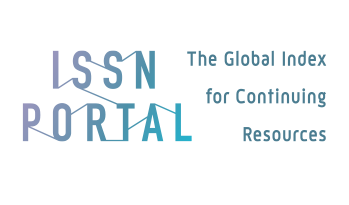FAKTOR PREDISPOSISI DAN REINFORCING YANG MEMPENGARUHI MINAT AKSEPTOR KB IUD PADA PANDEMI COVID-19 DI KELURAHAN PUSPANEGARA BOGOR
DOI:
https://doi.org/10.37776/zkeb.v11i1.689Abstract
Indonesia's population growth tends to increase every year, with an estimated population of 237.6 million people. One of the strategies for implementing the family planning program is to increase the use of IUD contraceptives. IUD contraceptive applicants in West Java are still very low, namely only 9.07%, different from DKI Jakarta Province IUD acceptors of 17.69 %. In December 2019 WHO declared the COVID-19 virus a global health emergency. This condition has an impact on the continuity of public health services, including family planning services. The aim of this research is to determine the predisposing and reinforcing factors that affect the interest of IUD family planning acceptors during the Covid-19 pandemic in Puspanegara Village, Bogor. The design of this study used a descriptive analytic with a cross sectional research design. The total sample was 50 active family planning acceptors. Analysis of the data used with the Chi Square Test. The results showed that out of 50 respondents as many as 45 respondents (90%) were not interested in using the IUD KB. This was influenced by predisposing factors for age (p value 0.001), parity (p value 0.002), knowledge (p value 0.004) and reinforcing factors for family planning services (p value 0.001). The conclusion of this study is the low interest of reproductive age couples to become IUD family planning acceptors during the Covid-19 pandemic.Downloads
References
ACTION B. Guidance on Social and Behavior Change for Family Planning During COVID-19. Impact, Planning, Fam 2020; 1–5.
Benson, L. S.et al. (2020) ‘Society of Family Planning interim clinical recommendations: Contraceptive provision when healthcare access is restricted due to pandemic response’, Society of Family Planning, pp.1–9. Available at: https://doi.org/10.46621/UYGR2287%0Ahttps://societyfp.org/wpcontent/uploads/2020/04/SFP-InterimRecommendations-Contraception-and COVID19_04.24.2020.pdf.
BKKBN, Jurnal Keluarga. Jakarta: BKKBN, 2018.
Departemen Pendidikan Nasional. (2014). Kamus Besar Bahasa Indonesia Cetakan ke delapan belas Edisi IV. Jakarta: Gramedia Pustaka Utama.
DINKES, Buku Profil Dinkes. Bogor: Dinas Kesehatan Kabupaten Bogor, 2018.
Dong E, Du H G. An interactive web-based dashboard to track COVID-19 in real time. LLancet Infect Dis., 2020, pp. 20(5):533–534.
Drayke Rosyana. "Faktor-faktor yang mempengaruhi rendahnya jumlah akseptor IUD pada pasangan usia subur di puskesmas Magersari Kota Magelang." STIKes 'Aisyiyah, 2010: 6.
Hidayat, A. (2016, November 24). Penjelasan Tentang Analisis Multivariat dan Jenisnya. Retrieved November 24, 2016, from Statistikian:
Kemenkes RI, Data dan Informasi Profil Kesehatan Indonesia. Jakarta: Kementerian Kesehatan Republik Indonesia, 2018. —. Profil Kesehatan Indonesia. Jakarta: Kementerian Kesehatan RI, 2018.
Kementerian Kesehatan RI. PELAYANAN KELUARGA BERENCANA DAN KESEHATAN REPRODUKSI DALAM SITUASI PANDEMI COVID 19. 2020.
Lindberg, L.etal. (2020) ‘Early Impacts of the COVID-19 Pandemic: Findings from the 2020 Guttmacher Survey of Reproductive Health Experiences’, (June), pp. 1–14. Available at: www.guttmacher.org. Meyer CG Velavan TP. The COVID-19 epidemic. Trop Med Int Health, 2020, pp. 25:278–280.
Notoatmodjo, S. (2010). Metodologi penelitian Kesehatan. Jakarta: Rineka Cipta.
Notoatmodjo, S. (2012). Metode Penelitian Kesehatan. Jakarta: Rineka Cipta.
Purwanti, S. (2020),‘Dampak Penurunan Jumlah Kunjungan KB Terhadap Ancaman Baby Boom Di Era Covid-19’, Jurnal Bina Cipta Husada, XVI (2), pp. 105–118.
Sari, Y. I. (2016). Ideologi dalam iklan keluarga berencana periode 2004-2014. Jurnal Scriptura, 1.
Saroha Pinem. (2009). Kesehatan Reproduksi & Kontrasepsi. Jakarta: Trans Info Media.
United Nations Population Fund UNFPA. Coronavirus Disease (COVID-19) Preparedness and Response UNFPA Interim Technical Brief. 2020.
Wawan, A dan Dewi, M. 2010. Teori dan Pengukuran Pengetahuan , Sikap dan Perilaku Manusia.. Yogyakarta : Nuha Medika
WHO Health Emergency. WHO (COVID-19) Homepage. WHO Homepage, http://covid19.who.int/ (2020).
















